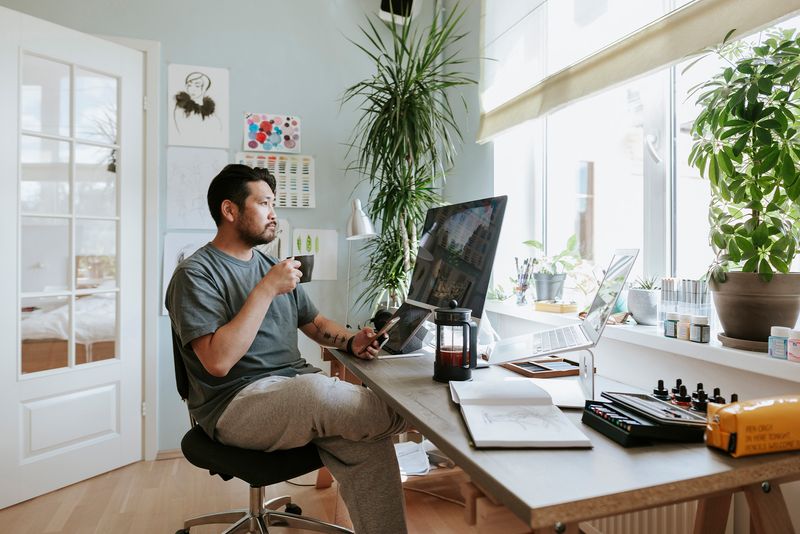Society’s views on health and wellness have dramatically shifted over the years. What was once frowned upon or considered strange is now celebrated as forward-thinking and beneficial. From mental health discussions to dietary choices, many formerly taboo practices are now recognized as key components of a balanced, healthy life.
Let’s explore these fascinating shifts in perspective that show just how much our understanding of wellbeing has evolved.
1. Talking About Mental Health

Speaking openly about anxiety, depression, or therapy used to be kept behind closed doors. People feared judgment or being labeled as ‘crazy’ if they admitted to seeing a therapist.
Today, celebrities share their mental health journeys on social media, and companies offer mental health days. Schools now teach emotional intelligence alongside math and science.
The shift represents a crucial understanding that mental wellbeing deserves the same attention as physical health. Far from being shameful, taking care of your mind is now recognized as essential to overall wellness.
2. Plant-Based Diets

Once mocked as extreme or impractical, plant-based eating has transformed from hippie fringe movement to mainstream health choice. Restaurant menus now proudly highlight vegan options instead of hiding them at the bottom of the page.
Athletes and celebrities embrace plant power, sharing how it improves performance and overall wellbeing. Medical research continues to support the benefits of reducing animal products in our diets.
Gone are the days when ordering a meatless meal meant getting a sad plate of steamed vegetables. Plant-based eating is now celebrated for its environmental benefits and potential to prevent chronic diseases.
3. Taking Mental Health Days

Calling in sick for mental health reasons was once considered lazy or unprofessional. People would invent physical ailments rather than admit they needed a day to reset their minds.
Forward-thinking companies now encourage employees to take mental health days when needed. This practice recognizes that preventing burnout is better than treating it after collapse.
Research shows that these strategic pauses actually boost productivity and creativity when employees return to work. The stigma is fading as we understand that mental exhaustion is just as valid as physical illness and deserves equal respect and recovery time.
4. Meditation and Mindfulness

Meditation was once viewed as strange or exclusively religious. Business professionals would have laughed at the suggestion of sitting quietly for 10 minutes during their workday.
Fast forward to today, and major corporations offer meditation rooms. Schools teach mindfulness to improve student focus, and healthcare providers recommend these practices to reduce stress.
Science has validated what practitioners have known for centuries: regular meditation can reduce blood pressure, improve sleep, and boost immune function. What was once considered fringe or mystical is now backed by research and embraced by millions seeking better mental clarity.
5. Therapy and Counseling

Seeking professional help for emotional struggles carried a heavy stigma in the past. Families kept therapy appointments secret, worried about what neighbors might think if they found out.
The landscape has shifted dramatically. People now proudly share their therapy breakthroughs on social media and recommend their counselors to friends.
Therapy is increasingly seen as a tool for growth rather than a last resort for serious problems. Much like having a personal trainer for physical fitness, having a therapist for mental fitness is now viewed as a proactive step toward overall health and personal development.
6. Working From Home

There was a time when working from home was seen as second-rate—less serious and less productive. Employers feared that, without managers watching, people wouldn’t get much done.
The pandemic forced a massive experiment that proved these fears largely unfounded. Many workers showed increased productivity and better work-life balance when given flexibility.
Health benefits include reduced commuting stress, more time for exercise, and opportunities to prepare nutritious meals at home. What employers once viewed suspiciously is now recognized as a way to support employee wellbeing while maintaining or even improving output quality.
7. Discussing Gut Health

Conversations about digestive issues were strictly off-limits in polite company. People suffered in silence rather than discuss symptoms or seek advice about gut problems.
Today, gut health is recognized as fundamental to overall wellness. Probiotic foods, digestive enzymes, and fiber supplements line grocery store shelves.
Scientists have discovered the gut-brain connection, linking digestive health to mood, immunity, and even skin condition. What was once considered embarrassing dinner table talk has transformed into an essential health conversation, with everyone from doctors to influencers discussing the importance of a balanced microbiome.
8. Taking Naps

Napping was once associated with laziness or considered appropriate only for young children and the elderly. Working adults who needed afternoon rest were viewed as lacking stamina or commitment.
Research has completely flipped this perception. Studies show that short power naps can boost cognitive function, creativity, and productivity.
Progressive companies now provide nap pods or quiet rooms for employees to recharge. Countries with siesta traditions are vindicated by science, as brief daytime rest periods are shown to reduce stress and heart disease risk while improving alertness for the remainder of the day.
9. Prioritizing Sleep

In the past, sleep deprivation was worn like a medal. Working late or staying out all night wasn’t just normal—it was admirable.
The tide has turned as sleep science reveals the critical role of rest in everything from immune function to cognitive performance. Sleep tracking apps and devices have become mainstream tools for health-conscious individuals.
Quality sleep is now recognized as non-negotiable for good health, on par with nutrition and exercise. The former “I’ll sleep when I’m dead” mentality has been replaced with an understanding that proper rest prevents disease and enhances quality of life.
10. Setting Boundaries With Technology

Being unavailable or offline used to raise eyebrows. Constant connectivity was expected, and quick email responses at all hours were the norm for dedicated professionals.
The pendulum has swung toward digital boundaries as we recognize the toll of constant notifications. Digital detoxes and tech-free times are now considered essential self-care practices.
Health experts recommend screen-free bedrooms and technology curfews to improve sleep quality and mental health. What might have seemed rude or unprofessional a decade ago—not immediately responding to a work message on a weekend—is now understood as a healthy boundary that prevents burnout and protects personal time.
11. Solo Dining and Activities

Eating alone at restaurants or attending movies solo often attracted pitying glances, making people feel uncomfortable being seen without company.
Today, solo activities are celebrated as forms of self-care and independence. Restaurants increasingly offer comfortable bar seating or single-friendly tables for those dining alone.
The ability to enjoy your own company is now viewed as a sign of emotional health rather than social failure. People share solo travel adventures on social media with pride, and the stigma around doing things alone has largely disappeared as we recognize the value of spending quality time with ourselves.
12. Discussing Salary and Finances

Money talk was strictly taboo in many circles. People kept financial struggles secret, often going into debt rather than admitting they couldn’t afford something.
Financial transparency has gained traction as a path to equality and education. Younger generations share salary information to negotiate fair compensation and discuss budgeting strategies openly.
This shift acknowledges that financial health is a crucial component of overall wellbeing. Stress from money problems affects physical and mental health, making open conversations about finances an important part of a holistic approach to wellness rather than a social faux pas.
13. Saying No to Social Obligations

Declining invitations without elaborate excuses was once considered rude or selfish. People would attend events they dreaded rather than simply saying they needed downtime.
The concept of social batteries has entered mainstream vocabulary. Understanding that introverts and even extroverts need recovery time between social engagements has become widely accepted.
Health experts now recognize that forcing yourself into unwanted social situations can trigger stress responses and anxiety. The simple “no thanks, I need some me-time” has transformed from potential friendship-ender to respected self-awareness, as we better understand the importance of honoring our energy limits.


Comments
Loading…